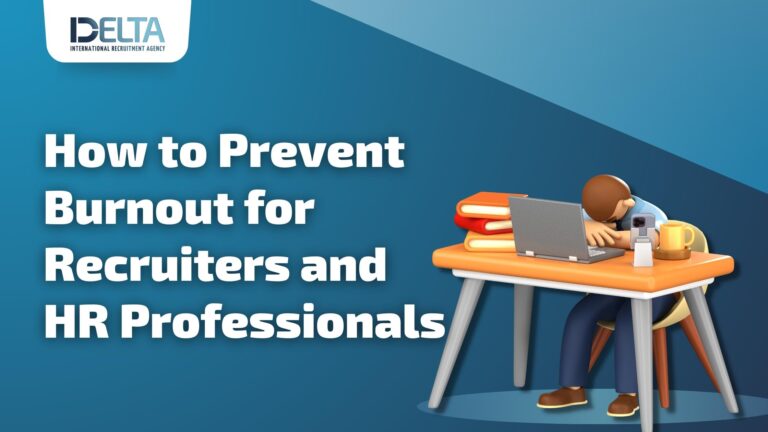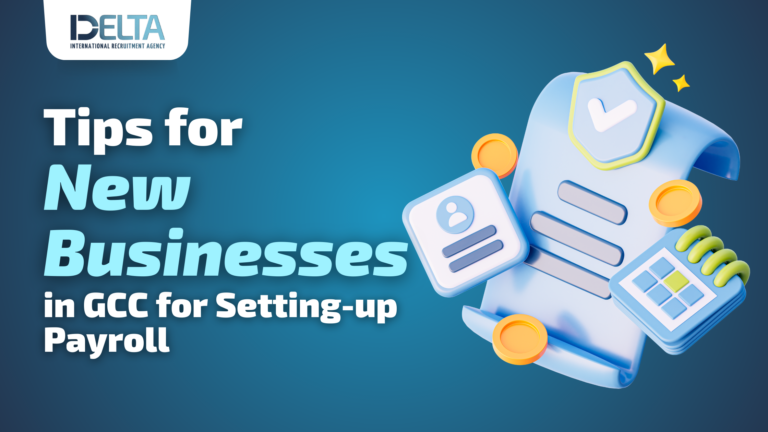Effective human resource professionals Qatari recruitment agency always put others first, tirelessly addressing the needs of employees, managers, and leaders. While they work hard to foster a positive workplace culture, their selfless dedication can sometimes lead to burnout, a disruption that can influence both career and life.
To avoid burnout, it is crucial to recognize the signs and maintain open communication with your manager. Taking a proactive stance can make a significant difference.
In addition, if burnout does come knocking, do not worry it does not have to be a permanent setback. Discover practical steps to prevent burnout or effectively manage it when faced with the challenge.
Get Ready for Common HR Challenges
HR professionals juggle various tasks—recruitment, policy creation, compliance oversight, employee well-being, and performance management. Alongside these responsibilities come significant challenges that, if not addressed, can lead to burnout.
To prevent burnout, it is crucial to prepare for the daily hurdles in HR. For instance, the rise of remote work has introduced unique challenges. Providing consistent support for every employee becomes trickier, and maintaining morale in an online socialization setting poses a common challenge for HR representatives. Be proactive by ensuring all employees have access to the necessary connections and resources.
Additionally, keep a list of remote socialization activities ready for managers and assist in scheduling them. Preparation is key. Identify common challenges in your role, brainstorm strategies to ease these challenges, and outline specific steps to reduce stress and minimize the risk of burnout.
10 Signs to Recognize Burnout
In addition to getting ready for tough times, it is important to know when burnout might be happening. Burnout is not just having a few bad days now and then, it is something that sticks around and can mess with how well you do your job. Look out for these signs:
- Feeling hopeless
- Quality of work going down
- Being tired all the time
- Getting easily annoyed with others
- Keeping away from personal life
- Not finding meaning in your work anymore
- Being late or leaving work early more often
- More headaches and muscle pains
- Not talking to coworkers like before
- Changes in appetite and sleep
If you see these signs lasting for weeks, it might be burnout. So, keep an eye out and take it seriously.
Image Source: australiawidefirstaid
Handle Burnout Effectively: A Comprehensive Approach
When the signs of burnout start creeping in, it’s more than just acknowledging them—it’s about taking decisive steps to address and overcome these challenges. Here is a more detailed guide on handling burnout effectively:
Open Communication with Managers:
-
- Schedule a meeting with your manager as soon as you recognize burnout symptoms.
- Be candid about your feelings and discuss how they are affecting both your professional and personal life.
- Collaborate on potential solutions, such as adjusting workload, redistributing tasks, or exploring flexible work arrangements.
Informing Loved Ones:
- Share your experience with burnout with those close to you.
- Explain how it might affect your interactions and daily life.
- Discuss ways they can offer support, whether it is through understanding, encouragement, or simply being there for you.
Taking a Purposeful Break:
- Request a well-deserved break from work to rejuvenate.
- Use this time to disconnect from work-related stressors and engage in activities that bring joy and relaxation.
- Consider a vacation, a staycation, or a combination of both to recharge both physically and mentally.
SMART Goal Setting:
- Develop clear and specific goals using the SMART framework.
- Ensure goals are measurable, achievable, relevant, and time-bound.
- Break down larger goals into smaller, manageable steps, providing a roadmap for gradual progress.
Prioritizing Holistic Health:
- Devote time daily to activities that nurture physical, mental, and emotional well-being.
- Incorporate regular exercise, a balanced diet, and sufficient sleep into your routine.
- Explore mindfulness practices like meditation, yoga, or deep breathing exercises to foster emotional resilience.
Seeking Professional Help:
- Consider engaging in therapy or counseling to address deeper emotional and mental health aspects.
- Mental health recruitment professionals can provide coping strategies and tools to navigate stress and burnout more effectively.
Building a Supportive Work Environment:
- Advocate for a workplace culture that prioritize employee well-being.
- Encourage open conversations about mental health and stress management.
- Explore initiatives like employee assistance programs or wellness workshops.
Remember, burnout is a common challenge, and taking proactive measures is a sign of strength, not weakness. By adopting a holistic approach, you not only address immediate concerns but also lay the foundation for long-term well-being and resilience in both your personal and professional life.
Tips for Employers: How to Prevent Burnout for Recruiters and HR Professionals




